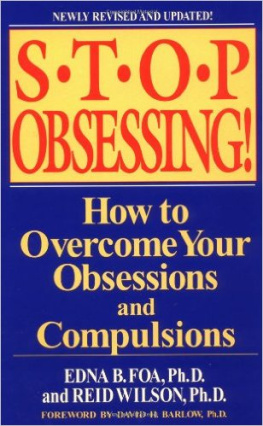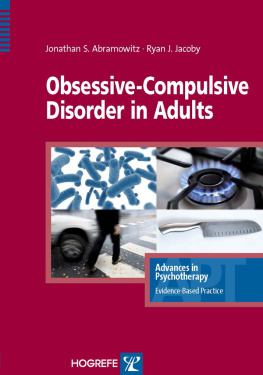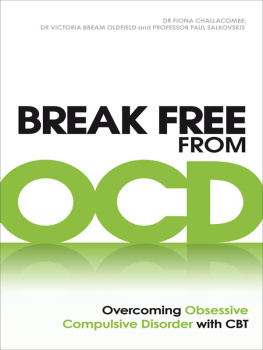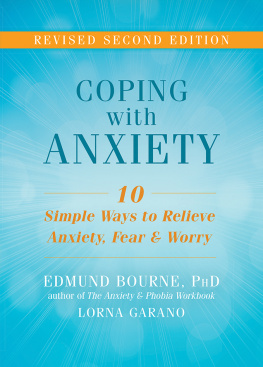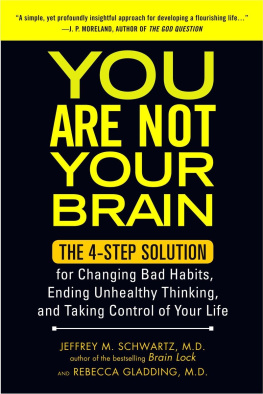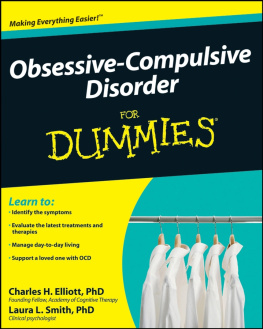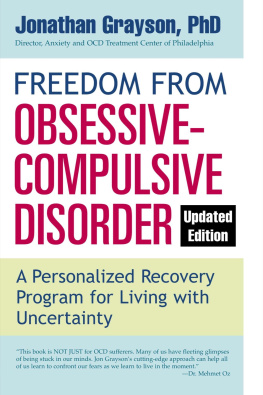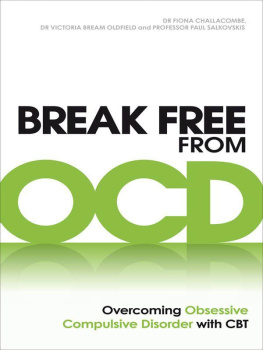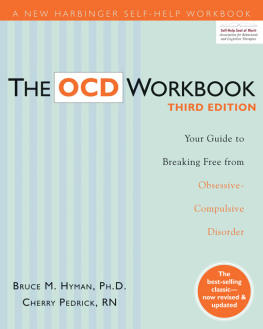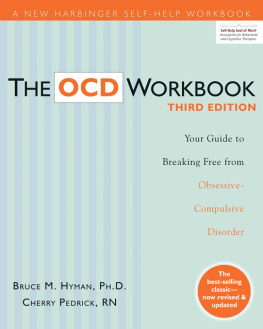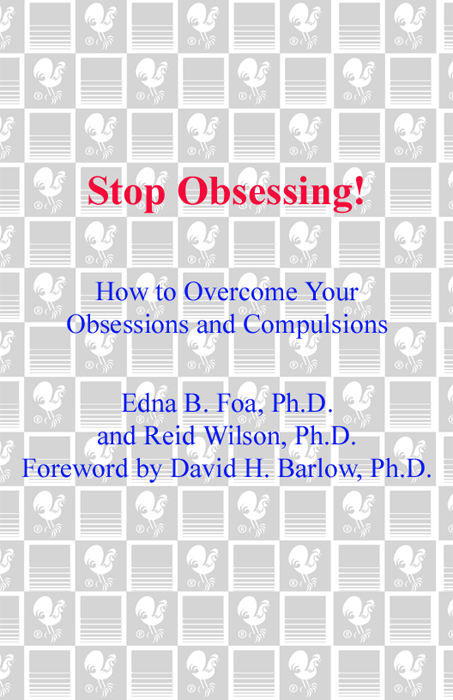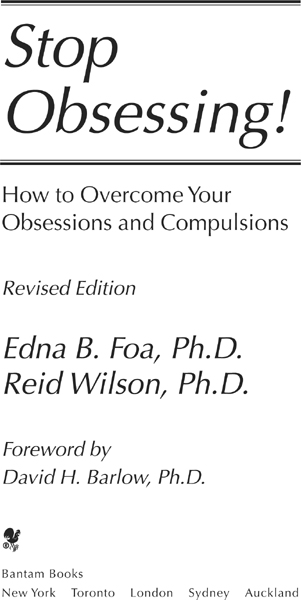Edna B. Foa - Stop Obsessing!: How to Overcome Your Obsessions and Compulsions
Here you can read online Edna B. Foa - Stop Obsessing!: How to Overcome Your Obsessions and Compulsions full text of the book (entire story) in english for free. Download pdf and epub, get meaning, cover and reviews about this ebook. year: 2001, publisher: Bantam, genre: Science fiction. Description of the work, (preface) as well as reviews are available. Best literature library LitArk.com created for fans of good reading and offers a wide selection of genres:
Romance novel
Science fiction
Adventure
Detective
Science
History
Home and family
Prose
Art
Politics
Computer
Non-fiction
Religion
Business
Children
Humor
Choose a favorite category and find really read worthwhile books. Enjoy immersion in the world of imagination, feel the emotions of the characters or learn something new for yourself, make an fascinating discovery.

- Book:Stop Obsessing!: How to Overcome Your Obsessions and Compulsions
- Author:
- Publisher:Bantam
- Genre:
- Year:2001
- Rating:3 / 5
- Favourites:Add to favourites
- Your mark:
Stop Obsessing!: How to Overcome Your Obsessions and Compulsions: summary, description and annotation
We offer to read an annotation, description, summary or preface (depends on what the author of the book "Stop Obsessing!: How to Overcome Your Obsessions and Compulsions" wrote himself). If you haven't found the necessary information about the book — write in the comments, we will try to find it.
Are you tormented by extremely distressing thoughts or persistent worries?
Compelled to wash your hands repeatedly?
Driven to repeat or check certain numbers, words, or actions?
If you or someone you love suffers from these symptoms, you may be one of the millions of Americans who suffer from some form of obsessive-compulsive disorder, or OCD.
Once considered almost untreatable, OCD is now known to be a highly treatable disorder using behavior therapy. In this newly revised edition of Stop Obsessing! Drs. Foa and Wilson, internationally renowned authorities on the treatment of anxiety disorders, share their scientifically based and clinically proven self-help program that has already allowed thousands of men and women with OCD to enjoy a life free from excessive worries and rituals.
You will discover:
Step-by-step programs for both mild and severe cases of OCD
The most effective ways to help you let go of your obsessions and gain control over your compulsions
New charts and fill-in guides to track progress and make exercises easier
Questionnaires for self-evaluation and in-depth understanding of your symptoms
Expert guidance for finding the best professional help
The latest information about medications prescribed for OCD
Edna B. Foa: author's other books
Who wrote Stop Obsessing!: How to Overcome Your Obsessions and Compulsions? Find out the surname, the name of the author of the book and a list of all author's works by series.

